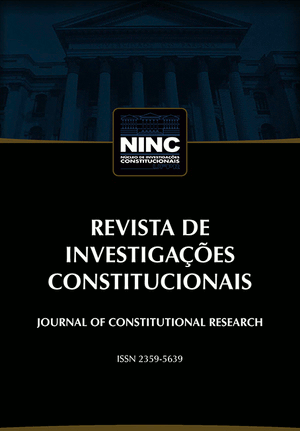Abstract
This article is the result of a comparative analysis of the various types of electoral systems, with the aim of establishing the foundations of electoral justice. The main characteristics of electoral systems are studied in terms of their normative, executive and adjudicative functions, as well the independence and autonomy among them; the allocation of such functions to one of the three spheres of state power; the recruitment, career and prerogatives of their members; and the main principles and guidelines orienting their decisions. The research is focused on national rights representative of legal systems influenced by common law and civil law. Based on international norms, electoral justice is contextualized as an indispensable mechanism of safeguarding fundamental rights from a human rights perspective. With a qualitative approach, supported by legislation and legal doctrine, the paper presents and reflects on the forms of electoral justice, its minimum standards, and the role played by such justice in the maintenance of a democracy. The research is focused on the subject of national rights representative of legal systems influenced by common law and civil law; with support from international norms, electoral justice is contextualized as an indispensable institution to safeguard fundamental rights from the perspective of human rights. In a qualitative approach, with support from legislative and doctrinal texts, the article provides an exposition and reflection on the forms of electoral justice, the minimum standards and the role played by such justice in maintaining a democracy.
Keywords:
human rights; democracy; electoral systems; elections; electoral justice
